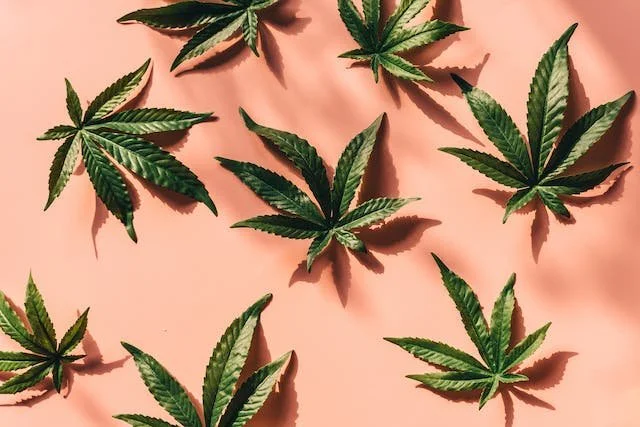Anxiety and Cannabis Use: A Two-Way Relationship
The latest reports show that anxiety rates have been on the rise for the past decade, with a particularly considerable spike since the beginning of the 2020 pandemic.
The American Psychological Association found that anxiety and depression rates among adults in the U.S. have significantly increased between April 2020 and August 2021 when compared to 2019. At the same time, experts warn that the mental health crisis among children and adolescents in the United States has become an emergency, with anxiety and depression affecting more young people than ever.
Using Cannabis to Cope
People use various strategies to cope with anxiety and try to calm themselves down. Unfortunately, nearly half of those dealing with anxiety never reach out for professional help, choosing to self-medicate instead. Many of them reach for cannabis to reduce stress and manage the symptoms of anxiety and depression.
For some people, cannabis acts as a lifeline for escaping the relentless grip of anxiety, offering relief and reprieve from intrusive racing thoughts and overwhelming worry. A lot of young adults who come for anxiety treament actually say they regularly use cannabis to help them deal with anxiety and other mental health issues.
But does cannabis really help with anxiety, or does it actually make it worse? And how much cannabis is too much? When do you know you have a problem?
Can Cannabis Help You Cope with Anxiety?
A growing body of research suggests that a non-psychoactive compound of cannabis called cannabidiol, or CBD, can be effective in reducing anxiety. CBD is one of the cannabinoids found in Cannabis sativa, extracted from two plants: the hemp plant and the marijuana plant.
CBD vs. THC: What's the Difference?
Both hemp and marijuana contain cannabinoids, yet there is a difference between these two cannabis plants. CBD extracted from the hemp plant has very little to no THC (tetrahydrocannabinol), the psychoactive ingredient that produces the psychotropic effects or the sense of "high" that the users experience. On the other side, the marijuana plant is high in THC.
CBD activates brain reward circuits, resulting in the release of serotonin. This neurotransmitter plays a crucial role in mood regulation. Because low serotonin levels in the body have been associated with anxiety and depression, consuming CBD can stimulate serotonin production, which can help reduce sadness and anxiety.
While CBD has a similar structure to THC, it doesn't influence the brain's reward centers in the same manner, meaning there is a lesser danger of abuse. However, the problem is that some people use cannabis as their primary or only tool for coping with stress and anxiety.
Psychological vs. Physiological Dependency
Continued cannabis use can lead to psychological dependency, where individuals become reliant on the mental and emotional effects of the drug. However, the abuse of drugs such as opioids, including prescription painkillers and heroin, can result in physiological dependence. This means that the body adjusts to the presence of the substance, and withdrawal symptoms may develop when its use is reduced or discontinued.
Can Cannabis Exacerbate Anxiety?
Studies show that cannabis may help reduce stress and temporarily ease the symptoms of depression. However, relying only on cannabis to cope with anxiety might have the opposite effect, like adding fuel to the anxiety flames, especially for people who are highly sensitive. In these people, the use of cannabis can create psychological dependence, build increased tolerance, and aggravate anxiety symptoms.
Also, research shows that THC can sometimes exacerbate anxiety symptoms in some users. Cannabis typically shows different effects when taken in small doses as opposed to higher doses. So, when you use small amounts of THC, this may stimulate the release of dopamine, causing you to feel relaxed, focused, and motivated. However, higher doses of THC can potentially trigger anxiety in some individuals.
Some researchers believe that cannabis intensifies existing emotions, meaning that its effects depend on your current mood and state of mind. If you use cannabis when already relaxed, it will enhance your calm and positive mood. On the other hand, if you feel worried, you may find that cannabis increases your sensitivity to stress, making your worry and fear worse.
Furthermore, extensive clinical research shows that THC can adversely affect a teen's developing brain, suggesting that regular cannabis use in adolescence can increase the risk of developing anxiety and depression later in life.
Summary
So, it is essential to recognize the fine line between using cannabis as an occasional relaxation tool and becoming dependent on it to numb emotional pain. For some people, cannabis may provide brief relief and make them feel less anxious. However, if you're suffering from persistent stress, anxiety, or depression, it's essential to look into anxiety treatment options.
If you want to see long-term results, psychotherapy, medication, and adopting specific healthy self-care strategies can help.
To find out more about our services, click here: anxiety treatment.



